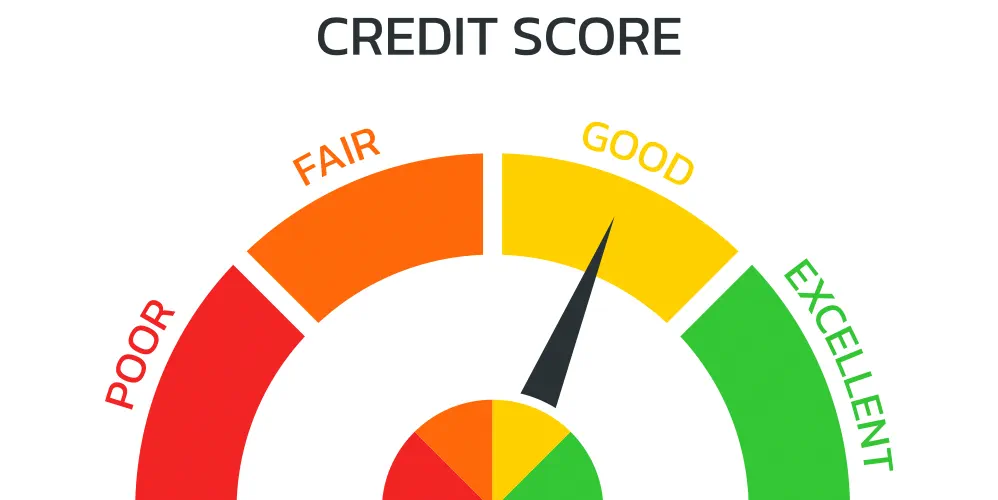Keeping your CIBIL score high is crucial if you want to get approved for loans or credit cards with suitable terms. Your creditworthiness is reflected in your CIBIL score, which also establishes whether or not lenders consider you to be a low-risk borrower.
For example, you want to remodel your house and want to apply for a personal loan. You should have no trouble getting your loan authorized fast and maybe even earn a reduced interest rate if your CIBIL score is 700 or above. Thus, it’s critical to raise and sustain your CIBIL score.
Here are some tips that will help you raise your CIBIL score.
Six Tested Strategies to Raise Your CIBIL Score
You may be able to obtain better terms and more access to financial products if your CIBIL score is higher. Some tried-and-true methods to raise your CIBIL score are as follows:
1. Make on-time bill and/or EMI payments:
Making on-time bill and EMI payments will raise your CIBIL score. Your score is heavily influenced by your payment history, and even one late or missed payment can have a detrimental effect. You may set up reminders or auto-debit to guarantee on-time payment. Your CIBIL score may be raised by being consistent and paying on time, which demonstrates to lenders that you are a trustworthy and fiscally responsible person.
2. Keep Your Credit Utilization Ratio Low
A credit usage rate around 30% indicates that you are not unduly reliant on credit, which is a good thing. A high consumption rate might be a sign of impending financial strain and reduce your CIBIL score.
3. Save your credit card and loan applications until absolutely necessary.
Your credit report receives a hard inquiry for each new loan or credit card application, which may lower your CIBIL score. Applying for several credit cards or loans at once may indicate to lenders that you are having financial difficulties. Rather, you need to apply for credit products carefully and only utilize them when absolutely essential.
4. Keep a Regular Eye on Your Credit Report
To stay on top of your CIBIL score and spot any inconsistencies or mistakes that could have an impact on it, you should routinely review your credit report. You may catch inaccuracies early on, such inaccurate personal information, accounts that don’t belong to you, or inconsistencies in your payment history, by routinely reviewing your report.
5. Keep Your Old Credit Cards Open
Your credit history may be ascertained in part by looking at previous credit cards. Your credit history is shortened when you close an old credit card, perhaps resulting in a lower CIBIL score. Keeping older accounts open also contributes to maintaining a low credit use percentage. If a card is no longer in use, you might want to leave it open and utilize it sparingly instead of shutting it completely.
6. Choose Extended Loan Terms
The monthly EMI amounts are lower when you select a longer loan duration, which helps you stay out of default by facilitating better payment management. Maintaining a consistent payment history is crucial for achieving a high CIBIL score. Longer terms can lessen the monthly payment burden, but over time, they can result in a higher total interest paid. It is crucial to strike a balance between the overall cost of the loan and the requirement for reduced EMIs.
What’s the Time Frame for Raising Your CIBIL Score?
Depending on the severity of your prior credit problems and the consistency with which you have exercised excellent financial practices, raising your credit score often takes four to twelve months. Steady improvement may be attained by making on-time installment payments, minimizing your credit use, and exercising caution when applying for new credit. More serious problems, such as bankruptcies or defaults, can, however, take longer to recover from.
In summary
Your creditworthiness can gradually increase if you practice prudent credit conduct, such as paying your bills on time, keeping a balanced credit mix, and routinely checking your credit report. It’s a slow process that needs perseverance and persistence. A high CIBIL score is necessary to apply for financial goods like credit cards, loans, and loans, as well as to simply keep your finances in order.
Commonly Asked Questions
How high should a CIBIL score be?
Generally speaking, a CIBIL score of 700 or more is positive and improves your chances of getting approved for a loan and getting favorable conditions.
How frequently ought I to look up my CIBIL score?
To guarantee accuracy and resolve any problems, it is advised to verify your CIBIL score at least once a year or before to applying for a credit card or loan.
Does my score change if I regularly check my CIBIL score?
No, you do not lose points for checking your CIBIL score; it is seen as a light inquiry.
If my CIBIL report has an inaccuracy, what should I do?
You should file a dispute with CIBIL as soon as possible by using the online dispute form if you discover a mistake in your CIBIL report.
After a loan default, is it possible to raise my CIBIL score?
Yes, even if a loan default negatively affects your CIBIL score, you may improve it by paying off your obligations in full, making your payments on time, and avoiding more defaults.

